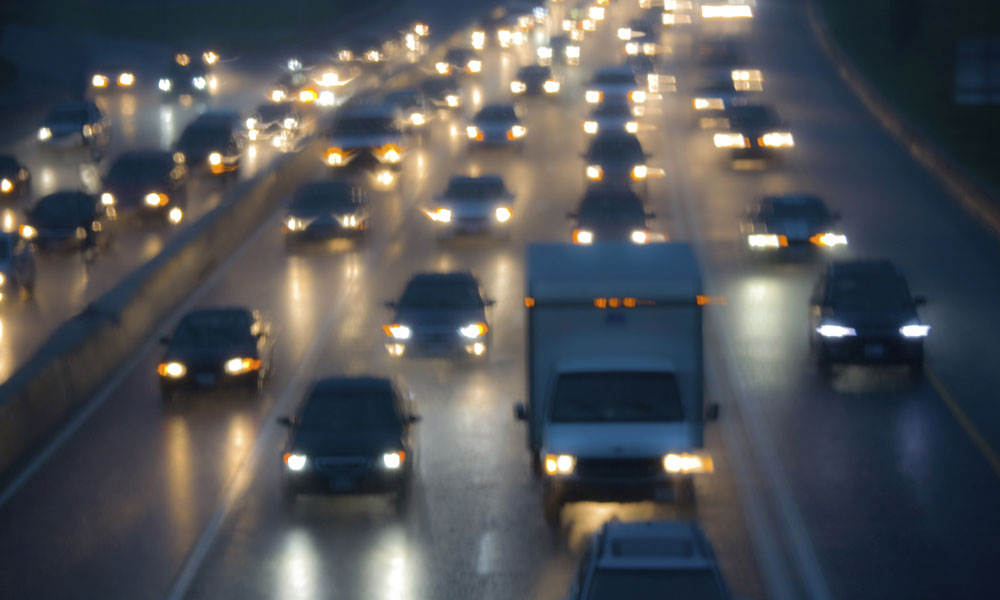
Traffic Jam: Associations React to Urban Mobility Scorecard
The nation’s roads are more packed now than they’ve ever been, according to a new report out of Texas A&M’s Transportation Institute. Several associations are using the report’s findings to push their message.
An improving job market and cheaper gas prices are nothing to complain about. But a new study out of the Texas A&M’s Transportation Institute (TTI) shows that those positive numbers lead to one major problem: increased traffic congestion.
According to the 2015 Urban Mobility Scorecard, produced by TTI in conjunction with data technology firm INRIX, drivers wasted more than 3 billions gallons of fuel and lost almost 7 billion hours while stuck in traffic in the last year, which cost the economy an estimated $160 billion. Per rush-hour commuter, that works out to about 42 hours per year and $960 lost.
Those numbers nearly double when looking at some of the most gridlocked cities throughout the country: Washington, DC, not so surprisingly, topped the list with 82 lost hours per commuter, followed by Los Angeles (80 hours), San Francisco (78 hours), and New York (74 hours). Traffic has gotten so bad in some areas, researchers found, that drivers have to leave themselves more than twice as much travel time as they’d normally need.
What’s more, researchers found that the congestion issue isn’t confined to just major metropolitan areas. “Cities of all sizes are experiencing the challenges seen before the start of the recession,” TTI said in a statement. “Increased traffic congestion resulting from growing urban populations and lower fuel prices are outpacing the nation’s ability to build infrastructure.”
Tim Lomax, a report coauthor and Regents Fellow at TTI said that the problem is getting too large for just one entity to handle and that state and local agencies need help. “Businesses can give their employees more flexibility in where, when and how they work, individual workers can adjust their commuting patterns, and we can have better thinking when it comes to long-term land use planning,” he said. “This problem calls for a classic ‘all-hands-on-deck’ approach.”
Associations had some suggestions of their own for how to tackle the commuting conundrum.
American Public Transportation Association President and CEO Michael Melaniphy said the report shows the importance of the public transportation system.
“Public transportation is effective in saving hundreds of millions of hours of delay and hundreds of millions of gallons of fuel,” he said in a statement. “In fact without public transportation, our current congested roadways would surely be gridlock. In earlier data from the 2013 Urban Mobility Report, it showed that travelers would have suffered an additional 865 million hours of delay and consumed 450 million more gallons of fuel.”
Others like the Transportation Construction Coalition, Associated General Contractors of America, and the American Society of Civil Engineers, noted the report’s perfect timing as the House and Senate continue to balk on passing a long-term transportation bill.
RT @ASCEGovRel: Does your city top the list for time stuck in traffic? http://t.co/KHQkPISYVd Lost time & fuel = reason to #FixTheTrustFund
— ASCE Headquarters (@ASCETweets) August 27, 2015
U.S. Department of Transportation data show that the Mass Transit Account of the Highway Trust Fund has enough money to run through the fourth quarter of FY 2016, but many programs supported by the trust fund are only authorized through the end of October. And that funding is only available because of a short-term fix approved by Congress last month.
“This is the third time in 10 months that Congress has had to keep the Highway Trust Fund solvent through passage of a short-term extension,” Bud Wright, executive director of the American Association of State Highway and Transportation Officials, said in a statement. “AASHTO has long advocated for long-term surface transportation legislation because it provides certainty.”






Comments